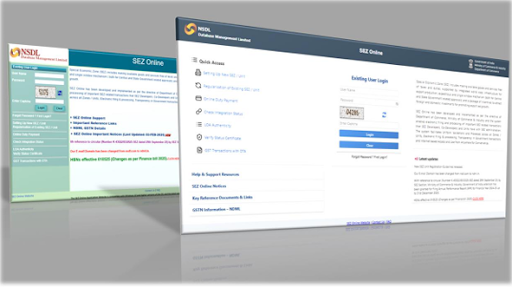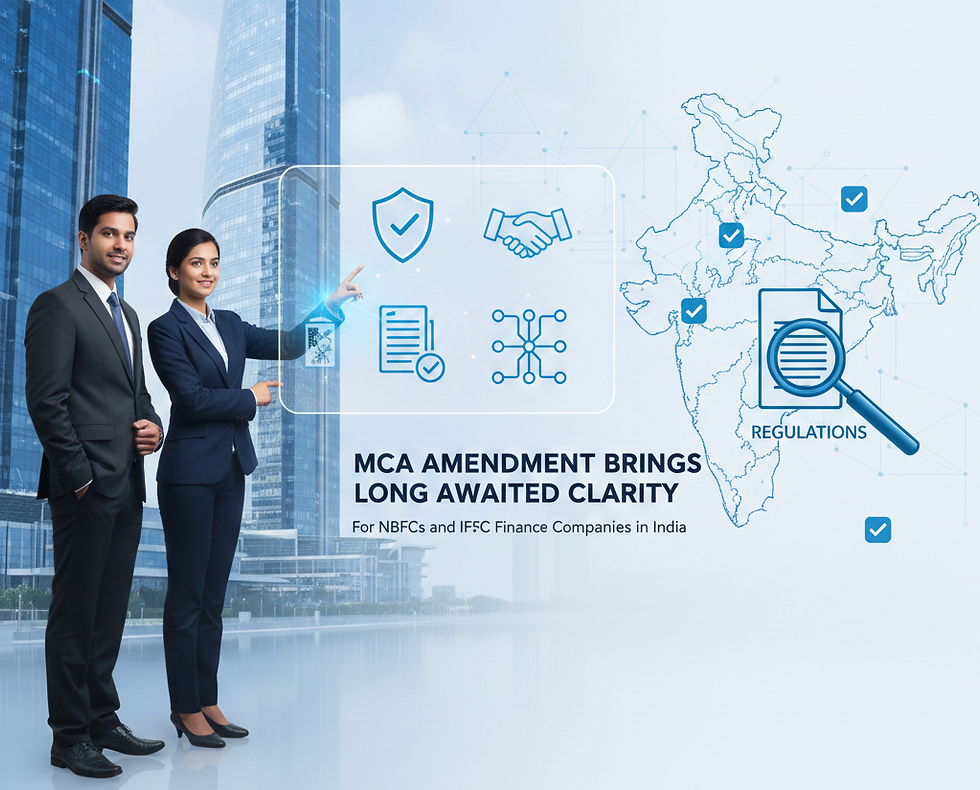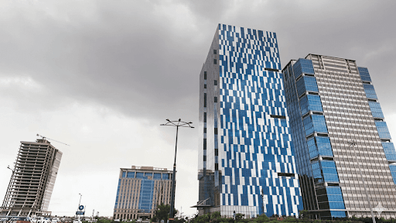🏦 IFSC Banking Unit (IBU) FAQs (2024): Your Guide to Setting Up Banking Operations in GIFT City
- GIFT CFO
- Jul 17
- 3 min read
Updated: Jul 24
🌐 Introduction: Why GIFT City is India’s Premier Banking Gateway
GIFT City, India’s first International Financial Services Centre (IFSC), is attracting banks, NBFCs, and global investors with its regulatory clarity, tax benefits, and global infrastructure. Banks operating here must set up a dedicated IFSC Banking Unit (IBU) — regulated jointly by the RBI and IFSCA.
Here are the most important FAQs about IBU operations — updated for 2024 — to help foreign and Indian banks navigate setup, capital, compliance, and permitted activities.

✅ Q1. Can Indian and foreign banks operate in GIFT City?
Yes. Both Indian and foreign banks (already operating in India) can set up an IFSC Banking Unit (IBU) within GIFT City.
📝 Q2. Is RBI permission required to set up an IBU?
Yes. Eligible banks must get prior approval under Section 23(1)(a) of the Banking Regulation Act, 1949.
💰 Q3. What is the minimum capital requirement for an IBU?
USD 20 million (or equivalent in freely convertible foreign currency)
Must be maintained at all times
For Indian Banks:
Capital must be provided by the parent bank
Regulatory capital for exposures is maintained at the parent level
For Foreign Banks:
Must provide USD 20 million
Must submit a six-monthly compliance certificate to RBI
Parent bank must issue a Letter of Comfort for capital support
📋 Q4. What activities can an IBU undertake?
Refer to Para 2.6 of RBI Circular (April 1, 2015). Broadly permitted:
Offshore lending and borrowing
Foreign currency deposit-taking
Trade finance and derivatives
Treasury and capital market transactions
🧾 Q5. Who can open accounts with IBUs?
IBUs can open foreign currency current accounts for:
IFSC-based units
Non-resident institutional investors (for investment/trading)
❌ Not available to individuals.
🏦 Q6. Can IBUs accept fixed deposits?
Yes, but:
No premature withdrawal within 1 year
Exceptions: If deposit is:
Used as loan collateral
Margin deposit for exchanges/clearing houses and there’s a default
🛡️ Q7. Who can establish financial institutions in IFSC?
Only regulated entities can operate — approved by regulators such as:
RBI
SEBI
IRDAI
PFRDA
Others under Indian law
Such institutions are considered “non-residents” under FEMA, 2015.
📈 Q8. Can Indian residents invest in financial institutions in IFSC?
Yes, under FEMA 2015 and FEMA 120 (foreign securities regulation).
But:
LRS (Liberalized Remittance Scheme) cannot be used for such investments.
🏦 Q9. Can financial institutions in IFSC open SNRR accounts?
Yes. As “persons resident outside India,” they may open Special Non-Resident Rupee Accounts (SNRR) with any Indian bank (outside IFSC) to meet INR expenses.
🧾 Q10. What KYC norms apply to IBUs?
IBUs must follow:
RBI Master Direction on KYC (Feb 25, 2016)
Enhanced due diligence may apply based on customer type or account risk
🔍 Q11. Can IBUs rely on third-party KYC?
Yes — under Para 14 of KYC Directions, 2016:
Third party must be a regulated entity
KYC data must be immediately available
RBI does not publish a fixed list, but banks can rely on compliant institutions (e.g., banks, brokers)
🌐 Q12. With whom can IFSC institutions deal?
They may transact in foreign currency with:
Residents and non-residents, as permitted by respective regulators
Must follow FEMA IFSC Regulations, 2015
💳 Q13. Do foreign investors need to open IFSC bank accounts?
Not mandatory.
IBUs can open foreign currency accounts for FPIs and IFSC units
Funds may be transferred:
From India-based foreign currency accounts
To IFSC accounts or abroad
Individuals must route transactions via their non-IFSC bank accounts
💼 Q14–16. What about margin deposits and premature withdrawals?
✔️ Permitted, but only for:
Default events
Clearing obligations
Core Settlement Guarantee Fund requirements
Subject to RBI Circular (April 1, 2015) and clearing corporation rules.
📌 Conclusion: IBUs in GIFT City Offer Global Banking Capabilities with Indian Oversight
Setting up an IBU in GIFT IFSC enables foreign and Indian banks to operate globally — with access to international clients, foreign currency transactions, and structured finance tools — under a well-regulated RBI framework.
📩 Need help with RBI approvals, FEMA compliance, or IBU setup? Reach out to GIFT CFO — your expert partner in regulatory navigation, licensing, and operational support for IFSC Banking Units.


























































































Comments